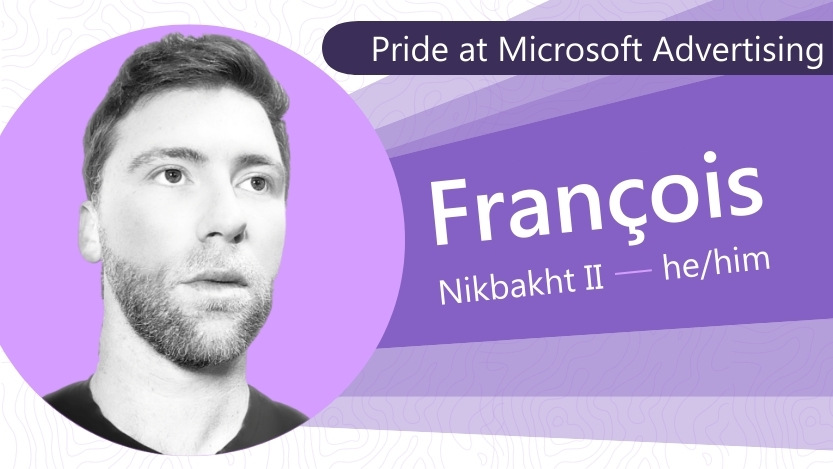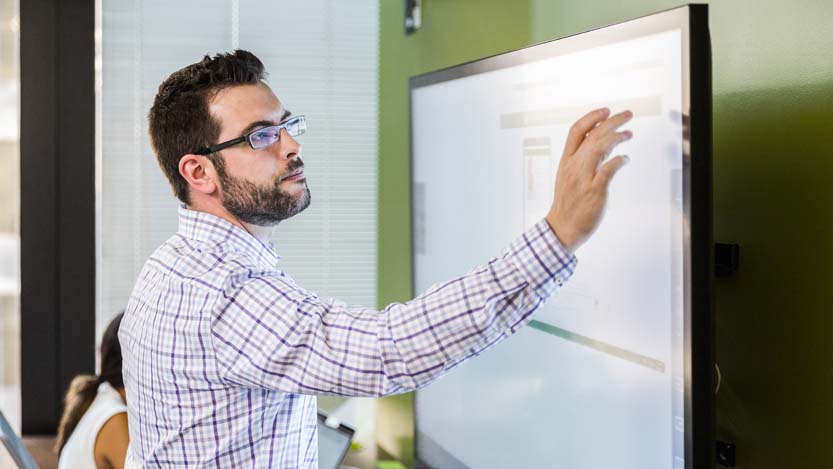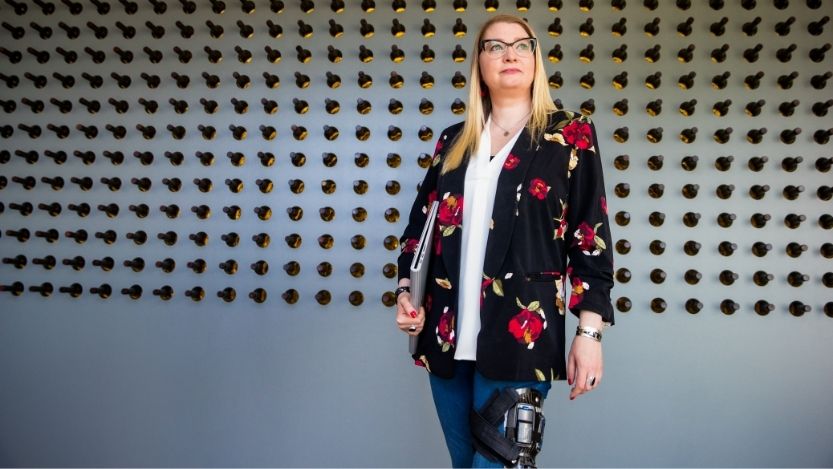Blog post
How truthful is your brand?
Transparency is the value most demanded by consumers,1 and it can be fundamental to driving purchases and brand loyalty.1 To succeed amongst their competition, brands need to prioritize consumer values as Millennials and Gen Z continue to age into the buying groups that choose value-driven brands.1 As part of our Open Perspectives Unplugged series, we asked experts why brand transparency and authenticity are key to success, and what brands need to do to adapt to stay relevant: Chief Executive Officer (CEO) and Co-Founder of Wildplastic, Christian Sigmund, Brand Experience Lead of Dentsu International, Jennifer Clarke, and Co-Founder of Moyee Coffee, Killian Stokes, all joined our panel discussion, “How truthful is your brand?”
Radical transparency needed!
Jennifer shared that transparency is important, as people want to work with brands that reflect their personal values. She added that consumers want to trust brands and know that those values are ingrained in the company culture. According to Jennifer, a Dentsu International research study discovered that “83% of people believe you should only earn revenue if you make an impact." Additionally, she mentioned that people are six times more likely to forgive a mistake if you are aligned to a purpose.
Both Moyee Coffee and Wildplastic are brands built with radical transparency at the center. Killian shared that the coffee industry is a billion-dollar business. However, 90% of coffee farmers earn less than €2 a day, and with all coffee being grown around the equator but roasted in the West or in European counties, it results in jobs being filled elsewhere rather than at the source. Moyee Coffee, founded in 2012, has a mission to keep 50% of the value from the coffee in coffee growing countries, and this is done by focusing on the farmers earning an income roasting and packaging bean-to-cup right at origin. Killian explained that where radical transparency comes to life makes a huge difference in the end result and how we drive awareness of our purpose: "We are digitizing the value chain from end to end. The consumer can now see and fully understand where the coffee is made and who gets paid in the supply chain.” The whole journey can be seen from the comfort of their own home just by using the quick response (QR) Codes on the packaging.
Wildplastic was founded in 2019 in Germany to provide purpose on the huge amount of unrecycled global plastic by producing more plastic bags from it. The company believes that plastic is a resource rather than waste, and as a purpose-driven company, it is steward-owned and therefore can fully dedicate itself to the mission rather than profitable gains. Christian noted that "80% of plastic today is not recycled." He further called out that “[i]t is about responsibility; we need to recover it and repurpose it. If we still need plastic as a material and resource, why don't we reuse it in a sustainable way?” When Wildplastic was founded, the team wanted to drive a positive impact, however, they asked themselves how they prove it first before they produce products. “It is one thing to want something but very different to do it.” In addition to the recovery of plastic and driving fair income for local societies, ‘plastic 4.0’ is where their big focus lies: the use of technology to change the impact of plastic on the planet and how we all can be transparent, tell the story, and share it with consumers.

No brand is perfect
Jennifer clearly stated that brands do not need to be perfect. Naturally, when appealing to consumers’ emotions, the risk of failing is high. However, if brands remain authentic by explaining transparently why and how they are doing things, consumers will want to be part of that journey. She went on to clarify that if intentions are clear and brands are honest about learnings and making mistakes, consumers will be empathetic and look to forgive these truly authentic brands.
Christian pointed out that the biggest driver that will influence the success of Wildplastic and other purpose driven brands is habit change. Changing habits is a hard challenge for any business, but customer/consumer education, awareness, and patience will all help to steer consumers and organizations on this journey. For Wildplastic, it is important that its products communicate that the brand is not the only solution to the plastic problem, and that it is up to the consumers to create a long-lasting impact as well.

Transparency extends to partnerships
All panelists mutually agreed that no purpose can be achieved, and that no industry can be changed alone in a vacuum. Strong partners and collaborations are essential for success. Jennifer equated partnerships to the concept of marriage, in which common goals and a mutual value exchange need to exist. Brands need to ask themselves: What is the ecosystem they are building, and how does this strengthen and sustain all stakeholders involved in the partnership?
Sometimes partnerships can be tricky strategic decisions. Christian mentioned the recent partnership with big retail brand Otto, which will start to use Wildplastic’s bags to ship their products to customers. The idea was not only to engage with similar brands but to increase impact for Wildplastic’s mission with the help of partners like Otto. Together, their goal is to increase the amount of plastic recovered by 10%, improve working conditions, and reduce carbon dioxide (CO2) emissions.
Transparency inside out
Jennifer highlighted that for the brand's purpose to be truthful, brands must be truthful with themselves. “The delta between what you are trying to achieve and where you are falling short is where the magic is.” Employees are your biggest advocates. Jennifer recommends starting small and leading by example. In business environments, leadership must also buy into the purpose and provide working structures, tools, and processes throughout the organization. Employees must be empowered to be truthful and transparent in everything they do.
Killian explained that within Moyee Coffee, operations must be excellent and ethical, and every single person plays a role in the way they communicate to drive success of the company.
Predictions for future behavior changes
For Killian, technology (e.g., QR codes; user experience) is key to align with growing consumer demands for transparency. In his opinion, brands will need to align with “[y]our supply chain is your brand.” His vision is that Moyee Coffee will be the leading example of change in the coffee industry, causing the big players to shift their business models in the same way.
Christian highlighted that alternatives and reusable materials are important for the future, but at the same time we need to make sure the past (e.g., toxic effects of existing plastic in the environment) is considered and worked on as well.
Jennifer called for a shift from purpose to progress. Brands who are doing good things need to start to tell their stories across the value chain. Brands should change the way they communicate, from pure campaigns into a lifestyle to which consumers want to align.

Key takeways
In closing, the panelists shared their key takeaways with the Open Perspectives Unplugged audience. Christian summarized and recommended to ask yourself more often: "What is the change we want to bring to this world?" He also recommended to stick to your long-term purpose and beliefs and to have honest conversations with oneself, and check you are still being true to your values. It cannot be optional, but something that is fundamental and crucial to success.
Jennifer called out that purpose continues to inspire people. As a leader or agent of change, clarify your “why," your personal purpose, and then what agency do you have in the organization to cause change. Align personal and professional purpose as it is all about driving clarity and will help you to pursue your purpose.
Resources
If you would like to read more about values that drive consumer trust and loyalty, download the Marketing with Purpose Playbook and earn a LinkedIn badge by taking the new Marketing with Purpose Course.
Open Perspectives Unplugged will continue in in September with a roundtable about sustainable advertising. Follow us on LinkedIn and Twitter to receive updates!
[1] Marketing with Purpose Playbook, Microsoft Advertising, September 2020.
Your input makes us better
Take our quick 3-minute survey and help us transform your website experience.





